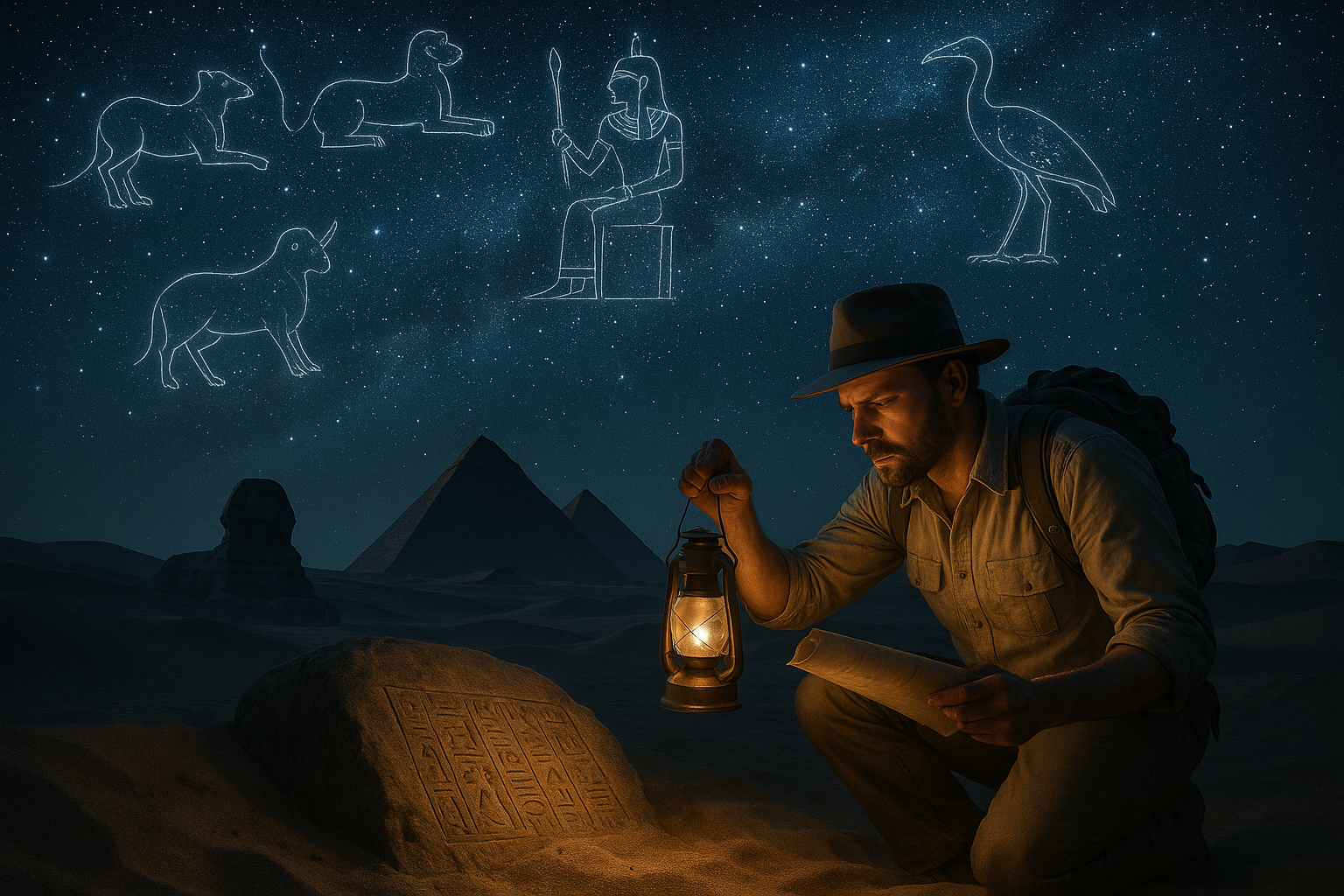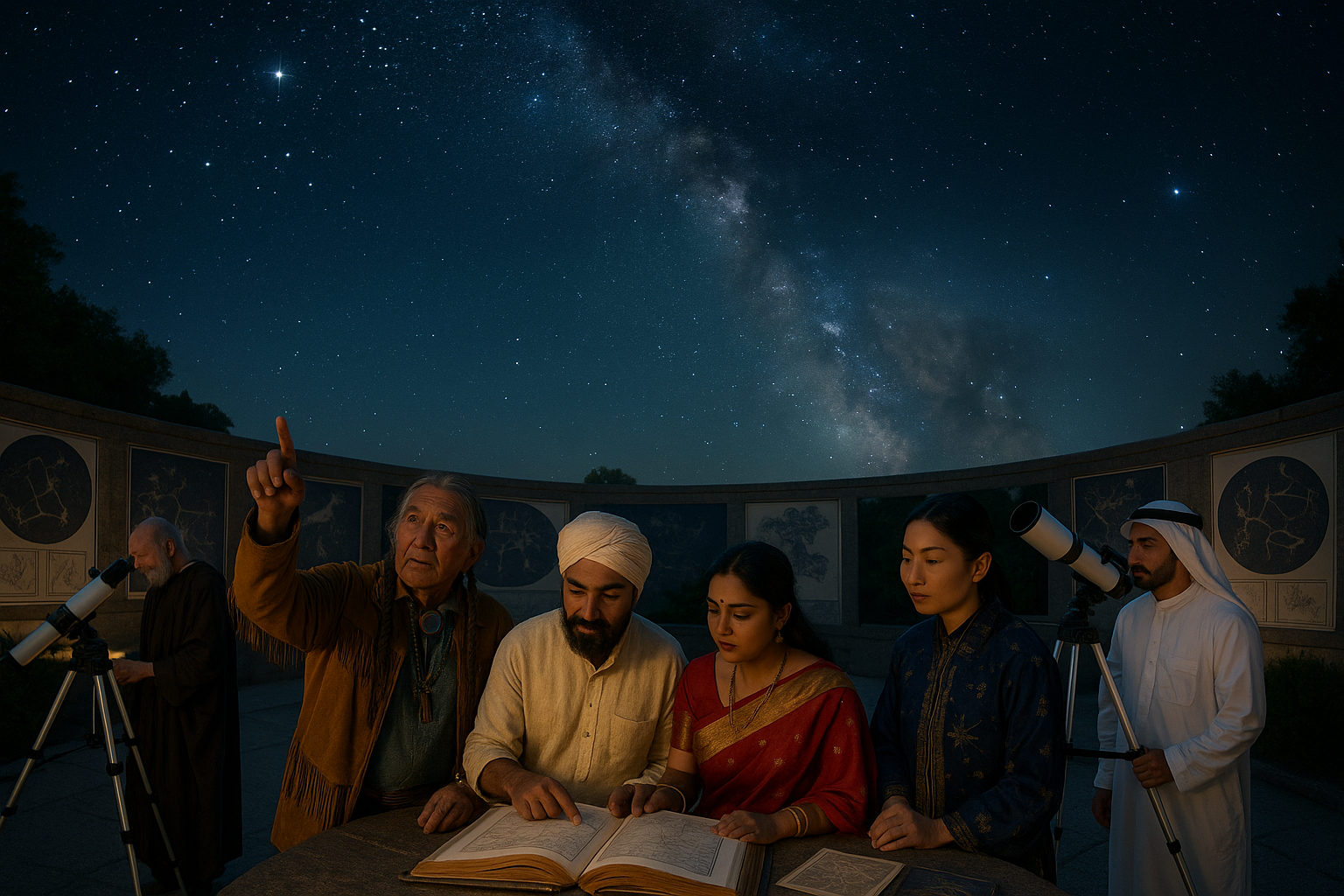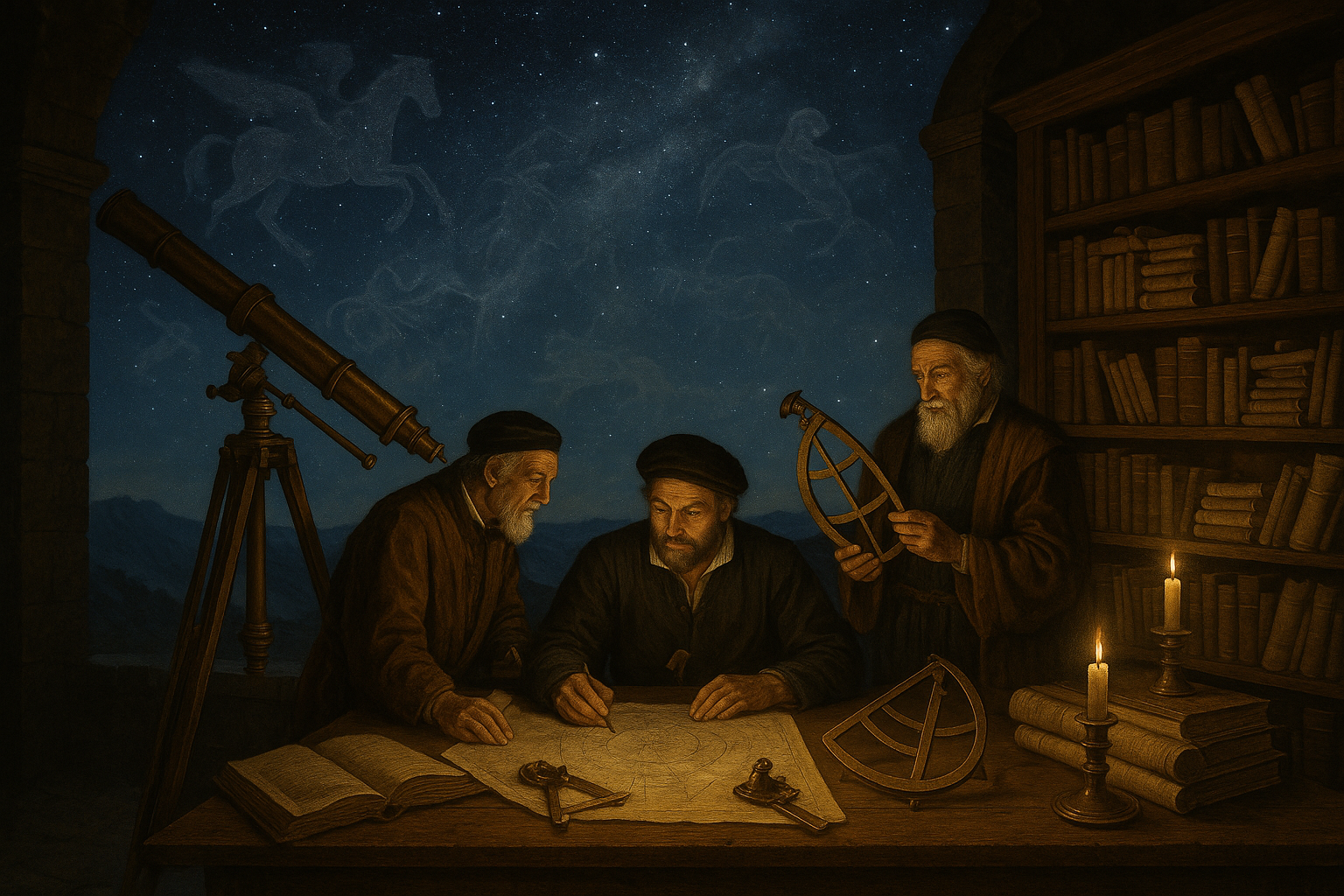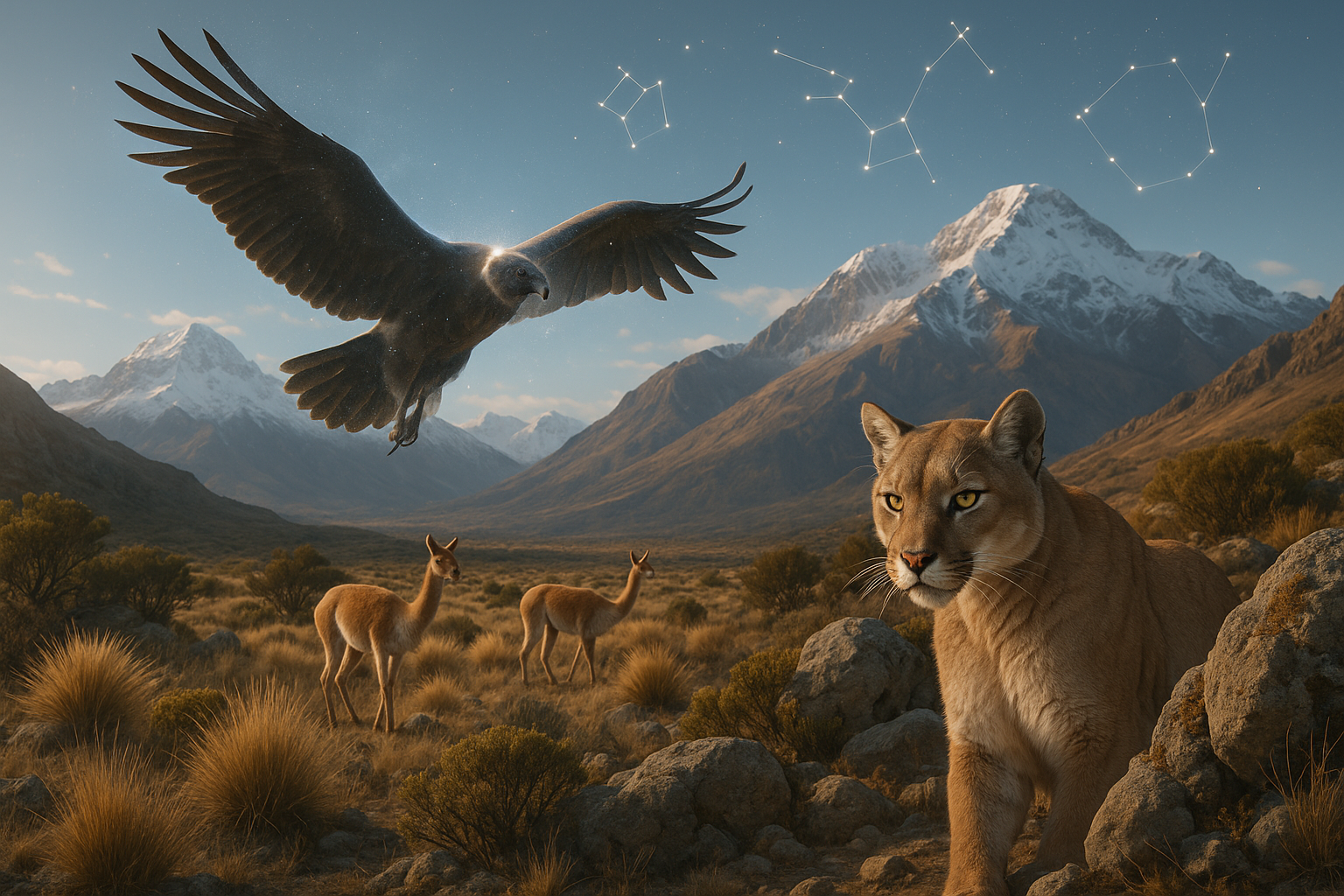The stars have always whispered secrets to those willing to listen. For centuries, humans have looked up to the night sky, seeking answers and guidance from the celestial bodies. Astrology, the study of these cosmic patterns, has woven itself into the tapestry of human culture. Yet, what if we told you that there’s more to the zodiac than meets the eye? Hidden beneath the surface of modern astrology lies a treasure trove of lost traditions, ancient practices, and forgotten insights waiting to be rediscovered. 🌌
In this article, we embark on a captivating journey to unlock the mysteries of lost zodiac traditions. We will peel back the layers of time to reveal the wisdom of our ancestors, who interpreted the heavens with a profound understanding that often eludes us today. From Babylonian star charts to medieval manuscripts, we will traverse the globe and the ages to illuminate the esoteric knowledge that once shaped civilizations. Our exploration will not only deepen your appreciation of astrology but also challenge your perceptions of what the zodiac truly encompasses.
Astrology has evolved through the ages, shaped by different cultures and philosophies. However, many of the practices and beliefs that defined its early days have been overshadowed by the more mainstream interpretations we recognize now. In our quest to unravel these ancient secrets, we will first delve into the origins of the zodiac. How did ancient astronomers first map the stars? What significance did these celestial patterns hold for them, and how did they influence daily life and decision-making? These questions are the key to understanding the foundations upon which astrology is built.
Next, we will journey to ancient Mesopotamia, where the roots of zodiac traditions took hold. The Babylonians were among the first to document the movement of the planets, developing a system that would later evolve into the zodiac signs we know today. Their meticulous records and interpretations laid the groundwork for the astrological systems that followed. By examining their contributions, we can gain insight into the original purpose and power of astrology.
As we move forward in time, we’ll uncover the influence of Greek and Roman cultures on astrological practices. These civilizations not only adopted the zodiac but also added their own mythological layers, embedding the stars with stories of gods and heroes. The blending of science and mythology during this period gave rise to a rich tapestry of astrological thought, one that still resonates in our modern understanding of the zodiac.
But our journey does not stop there. We will also explore the lesser-known astrological traditions of the East. In China and India, astrology developed along different lines, resulting in systems that, while distinct, share fascinating parallels with their Western counterparts. How did these cultures interpret the celestial sphere, and what unique insights did they bring to the zodiacal table? By comparing these diverse traditions, we can appreciate the universality of astrology as a human endeavor to make sense of the cosmos.
Throughout this exploration, we will also touch upon the medieval and Renaissance periods, when astrology experienced a resurgence in Europe. This era saw the merging of scientific inquiry with mystical thought, leading to a renaissance of astrological study and practice. We’ll delve into how scholars of this time sought to harmonize astrology with emerging scientific discoveries, ultimately shaping the way we perceive the zodiac today.
Finally, we’ll bring our journey to the present, examining how modern astrology has both preserved and diverged from these ancient traditions. What have we lost along the way, and what can we reclaim from the past to enrich our understanding of the stars? As we bridge the gap between history and the present, you’ll discover how embracing these lost traditions can offer a more holistic and profound perspective on astrology.
So, as we prepare to delve into the depths of lost zodiac traditions, ready yourself for an enlightening expedition through time and space. Whether you’re a seasoned astrologer or a curious seeker, this journey promises to expand your horizons and deepen your connection with the stars. 🌠 Let’s unlock the mysteries together.
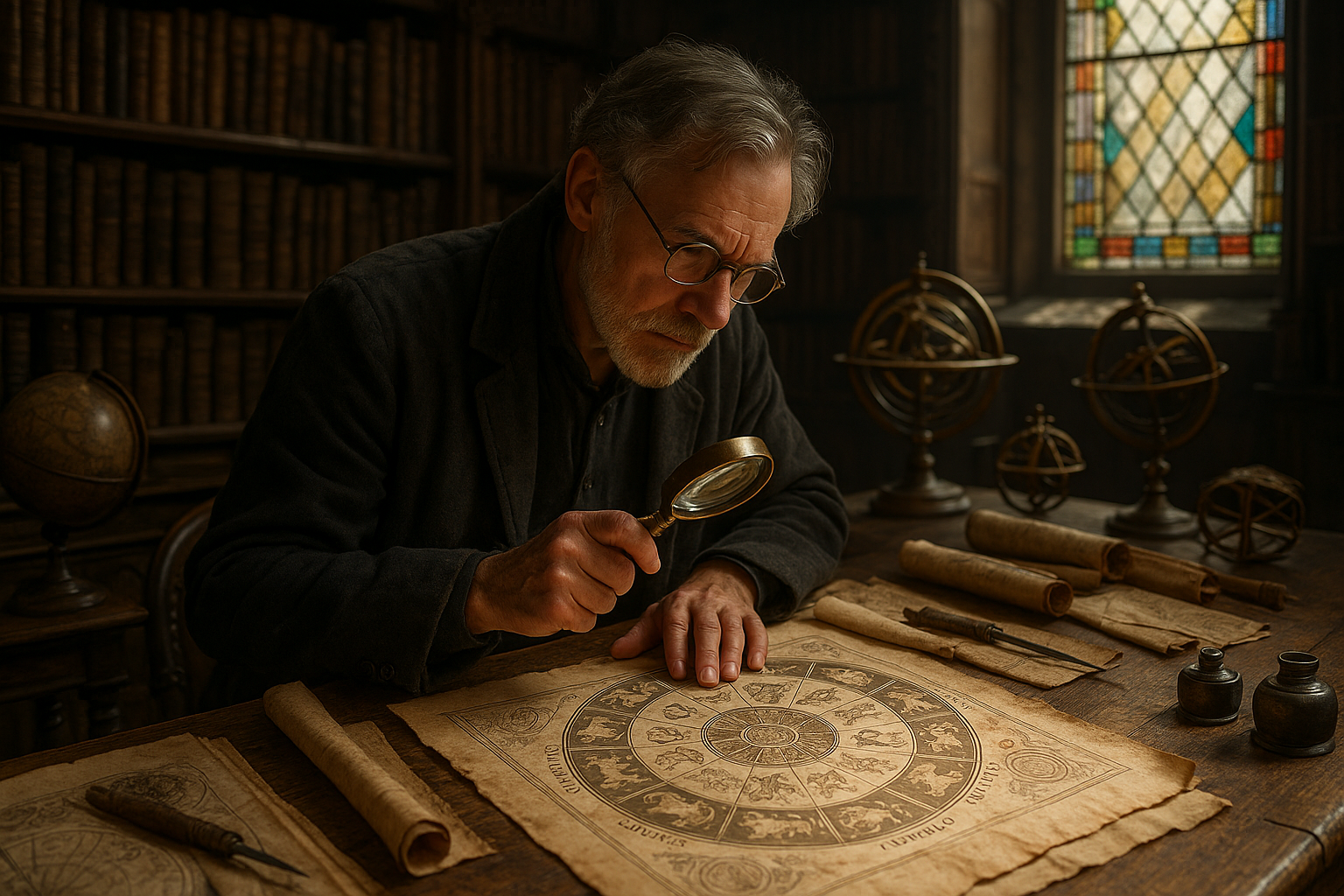
Conclusion
## A Journey Worth Taking
The zodiac has guided humanity for thousands of years, yet we’ve only scratched the surface of its profound wisdom. Throughout this exploration of lost zodiac secrets, we’ve uncovered forgotten techniques, ancient calculations, and interpretations that our ancestors held sacred. These rediscovered methods offer us a richer, more nuanced understanding of astrological influence than the simplified sun sign horoscopes we see today. By reconnecting with these hidden layers of zodiac knowledge, we open ourselves to a more authentic relationship with the cosmos and gain valuable insights into our personalities, relationships, and life paths that were nearly lost to time.
What makes these lost secrets so powerful is their ability to bridge the gap between ancient wisdom and modern self-discovery. The thirteenth zodiac sign, the importance of house systems, the role of fixed stars, and the deeper meanings behind planetary retrogrades all contribute to a more complete astrological picture. When we integrate these forgotten elements into our understanding, we move beyond generic predictions and enter a realm of personalized guidance that resonates on a deeper level. This isn’t about blind belief or superstition—it’s about recognizing patterns, understanding cosmic rhythms, and using this knowledge as a tool for personal growth and self-awareness.
As you continue your own astrological journey, remember that the zodiac is a living tradition that evolves while honoring its roots. The secrets we’ve unlocked here are invitations to explore further, question deeper, and connect more meaningfully with the celestial forces that have fascinated humans since we first looked up at the night sky. Whether you’re a skeptic, a casual enthusiast, or a devoted practitioner, these lost zodiac secrets offer something valuable: a reminder that there’s always more to discover about ourselves and our place in the universe.
Toni Santos is a visual researcher and symbolic astronomer specializing in the study of archaic celestial systems, sacred star observation practices, and the visual languages embedded in ancient astral lore. Through an interdisciplinary and sensory-focused lens, Toni investigates how humanity has encoded knowledge, prophecy, and mystery into the astronomical world — across cultures, myths, and forgotten observatories. His work is grounded in a fascination with stars not only as celestial bodies, but as carriers of hidden meaning. From extinct star cult rituals to mythical constellations and secret astronomical codes, Toni uncovers the visual and symbolic tools through which cultures preserved their relationship with the celestial unknown. With a background in design semiotics and astral cartography history, Toni blends visual analysis with archival research to reveal how stars were used to shape identity, transmit memory, and encode sacred knowledge. As the creative mind behind disxan, Toni curates illustrated star maps, speculative constellation studies, and symbolic interpretations that revive the deep cultural ties between cosmos, celestial folklore, and forgotten astronomy. His work is a tribute to: The lost celestial wisdom of Archaic Astronomical Knowledge and Symbolism The guarded rituals of Obscure Rituals of Star Cults The mythopoetic presence of Celestial Myths and Forgotten Constellations The layered visual language of Star Temples and Forgotten Astral Shrines Whether you're a celestial historian, symbolic researcher, or curious seeker of forgotten astral wisdom, Toni invites you to explore the hidden origins of star knowledge — one constellation, one glyph, one secret at a time.

